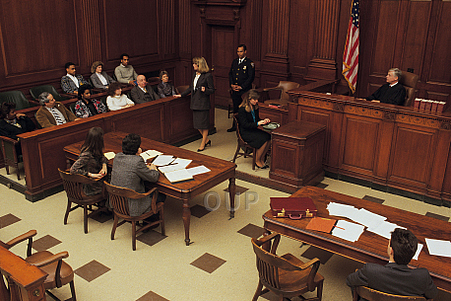 Anna Konieczna-Purcha?a takes a look at how she uses a TV show in her Legal English classes. If this is something that interests you, take a look at Express Series English for Legal Professionals.
Anna Konieczna-Purcha?a takes a look at how she uses a TV show in her Legal English classes. If this is something that interests you, take a look at Express Series English for Legal Professionals.
I work with lawyers and translators of legal texts, helping them acquire the vocabulary and skills they need to be successful at their jobs. In principle, these students are willing and motivated. In practice, they usually come to class after a long hard day at work. They are tired, and – much as they try to shake off the fatigue – their thoughts go towards home, dinner, and rest.
Before any successful learning can occur, they need to wake up, re-focus, and become truly present in the classroom.
And that’s where bad TV comes in.
Why would you ever use TV drama in Legal English classes, when there is a massive amount of real-life information and resources to assist learning, especially at higher levels? The statutes, rulings and debates are all out there, just begging to be turned into authentic study materials. There is just one problem: after a whole day of dealing with authentic legal texts, more of the same is the last thing my students want to see. Sure enough, they will read and discuss whatever I offer to them, because they are dutiful, and hard-working, and really keen on learning.
But will my thoroughly authentic materials make their eyes light up and their tiredness disappear?
I doubt it.
It all changes dramatically if I let them watch TV, even just for a while. I set the scene by telling them that they are about to watch civil litigation unfold. I switch on an episode of The Defenders, playing it from the moment a trial begins. Opening speeches are presented, so the students learn the premise of the trial first-hand from the characters on the show. Now, real-life opening speeches can be boring. The Defenders on the other hand are entertainment TV. They cannot afford to be boring. The trial unfolds with drama running high, reaching a peak when Jim Belushi’s character asks his partner to give himself a severe allergic reaction, and then swoops in to save him with an epinephrine shot to his suit-clad butt, all in the courtroom. It is hilarious, it is most unlikely, and it is utterly engaging.
The clip is only about 6 minutes long. In these 6 minutes, I achieve three goals.
Firstly (and most importantly), I get my students to focus on the shared reality of the classroom, and enjoy it.
Secondly, I give them a glimpse of the American courtroom, and now we can do a classic “compare & contrast” exercise with the Polish courtroom they all know well.
Thirdly, we get a head start on the vocabulary of civil proceedings, including daunting phrases such as ‘punitive damages’ and ‘professional negligence’. We are now just about ready to make use of actual authentic materials.
Bad TV clearly proves to be good for teaching Legal English. I should probably qualify the ‘bad’: The Defenders is a great series, in its own category. However, it is not serious, or firmly rooted in reality, or sound in its portrayal of the law. And yet, it makes for an excellent teaching aid.
Since I have already introduced my class to the characters in The Defenders, I might want to revisit the series after a few weeks’ break. For example, when discussing criminal law and the classification of crimes, the episode comes in handy that portrays a con woman accused of battery and assault with a deadly weapon, as well as grand larceny (the main character will fall for her tricks; it will be very funny). As for the former two crimes, similar ones do exist under the Polish law, but their names do not correspond easily to their US equivalents – an opportunity for a good translation exercise. As for the latter, the shift from the crime of larceny to the crime of theft in some legal systems provides for an interesting discussion. Since the 5-minute excerpt is, again, entertaining and engaging, the students’ attention is focused on the classroom activity, and their mood is lifted. The authentic materials can be successfully brought out now.
What are your strategies to wake the students up and re-focus their attention?
[The epinephrine case: The Defenders Season 1 Episode 15; the assault, battery & larceny case: The Defenders Season 1 Episode 5.]


That’s great, Anna. In this case, I don’t even think you need to label it as “bad.” It works for the class you have and that alone makes it good. You could label it as “something I’m embarrassed to admit I have to use with this group because it’s a pretty ridiculous TV program,” though! I’ll use anything to get my point across. I used to teach an Elvis impersonator and he really struggled unless I found an Elvis song that had the teaching point in it. I went through some really bad songs!
Hello Anna! I hope the day I teach without humour never EVER comes! It so motivating to do our duties in a lively environment! Your lessons surely are peaks of joy for your students during the weekdays. André Thiago mood you create also contributes for them not to give up.